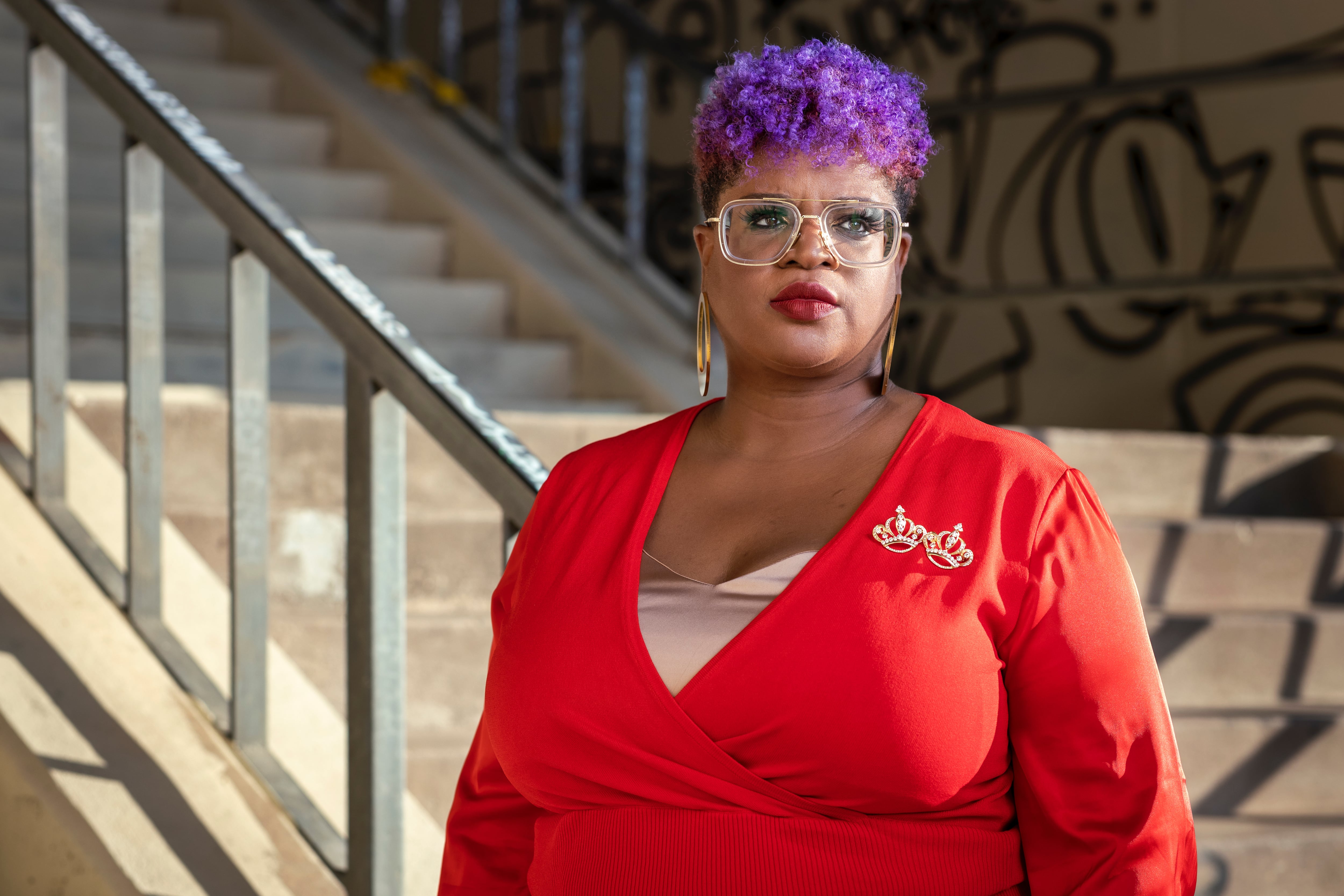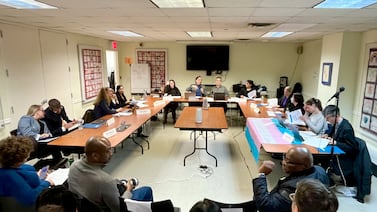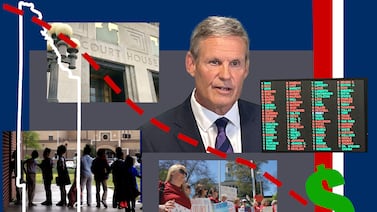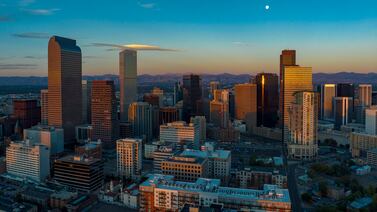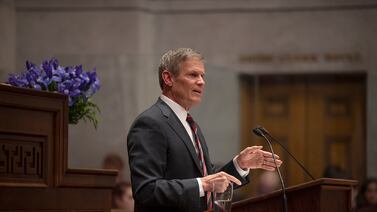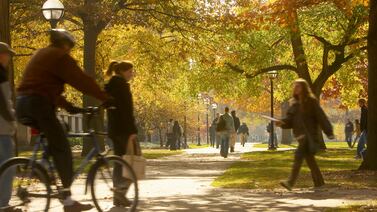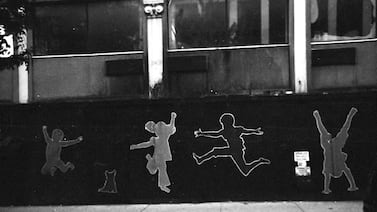A group of women at Enon Tabernacle Baptist Church in Germantown played a key role in Camika Royal’s upbringing. They shared their experiences and memories, and later helped Royal and her sister with college applications. Royal, now an associate professor of urban education at Loyola University Maryland, remembers these women — some of whom were educators — talking about the 1960s, when some 3,500 students marched to the Philadelphia Board of Education building to demand better opportunities for Black students.
Royal went on to get her Ph.D. from Temple University, where she studied Philadelphia school reform efforts in the 1960s. It dawned on her that “I had these wonderful, beautiful Black elders at this church who I knew somehow were involved,” she said. So she decided to talk to get their first-hand accounts as part of her research for a paper.
That research became her doctoral dissertation and, recently, a book, “Not Paved for Us: Black Educators and Public School Reform in Philadelphia.”
“It just stuck with me,” she said. “I was like, somebody should be telling this story. Somebody has to document it.”
Royal read through Board of Education minutes from 1967 through 2017 to trace the history of Philadelphia public school reform efforts. But she also interviewed witnesses to those efforts, including those elders at her church. “I wanted to get the Black perspective,” she said.
She corroborated those interviews by matching them with news stories from The Philadelphia Tribune.
Royal spoke with Chalkbeat about her research.
This interview has been lightly edited for clarity and length.
What’s the main takeaway you’d like readers to get from this book?
It depends on who is reading the book — teacher, school leader, school board member or legislator, community organizer, parent, grad student ... I hope this book helps school administrators think differently about how they lead — how they look at budgets or staffing, or how they engage with families.
My book shares an important perspective on education in Philadelphia. Even though it’s about Black educators and the politics of school reform in Philadelphia, I hope a wide array of people decide to read it to see how useful it can be in their sphere of influence.
What were some of the major school reform efforts over the last 50 years? Did any of them work?
It’s complicated. The book starts in 1967 and ends in 2017 because 1967 is when the “modern era” of school reform began in Philadelphia. This young, white guy [former school superintendent Mark Shedd] was brought into Philly from Harvard, and the idea is he’s going to shake things up.
Right after he gets here — Nov. 17, 1967 — 3,500 students across the city have this big protest. Young people were pushing back against the school district around the type of education they wanted to receive. They wanted more Black teachers, classes in African-American studies, to wear African-American clothes to school. On Nov. 17, they came down to 21st and the Parkway — the former Board of Education headquarters — to protest. Frank Rizzo was the police chief at the time, and he released his officers on the Parkway and told them to “get their Black asses.” The book ends with the school reform commission voting to dissolve itself and return the district to local control. I would say it’s now back to mayoral control.
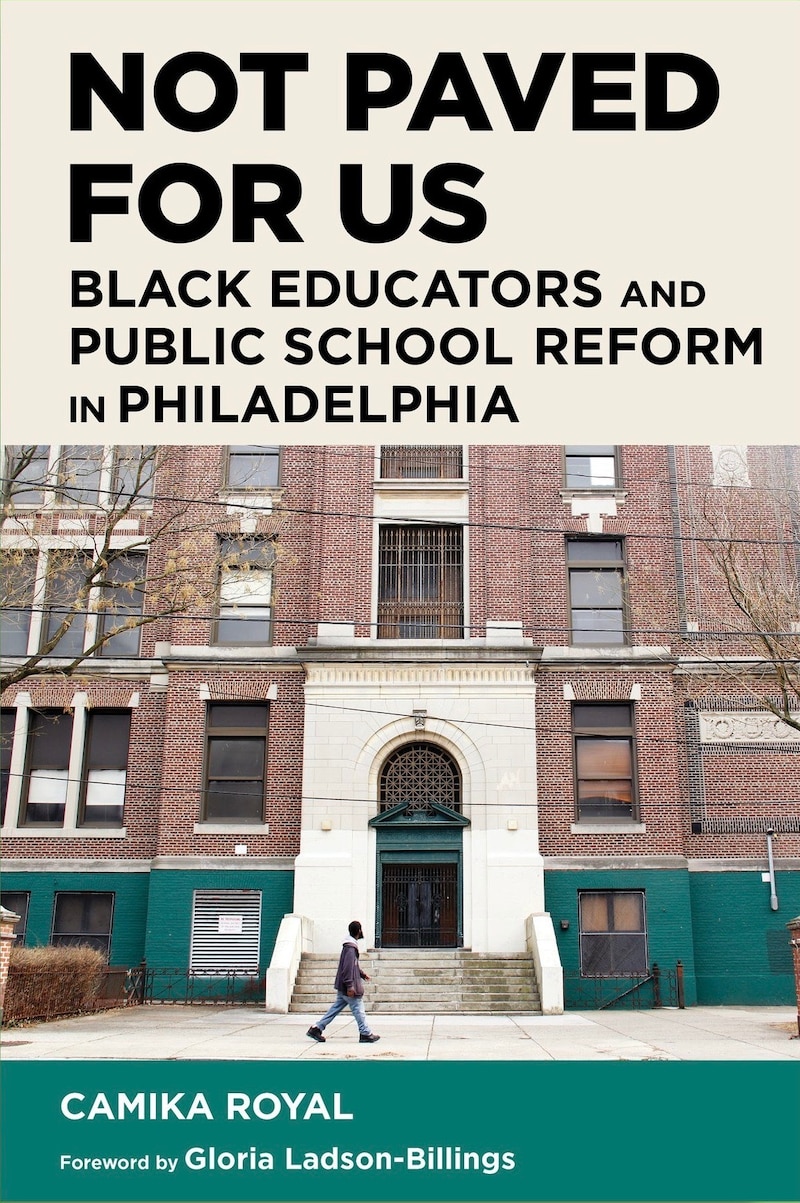
Mark Shedd, and Mayor Richardson Dilworth who brought him on, they’re seen as lefties. Shedd would talk about how he’d like to shake things up, but community members were asking things like, the student population is 65% Black, so how come there’s only one or two Black people on the school board? They always sort of kept that number down — “Here’s this token seat, or two seats.”
The person who actually put the most Black people on the school board was Frank Rizzo. Rizzo, after he became mayor, was smart enough that he out-liberaled the liberals. People had been asking these white liberals to do something, and they refused. Rizzo saw this as an opportunity to put on the board the Black people who would do his bidding.
Shedd was seen as a guy who had a lot of ideas but didn’t have the money to deliver.
During Rizzo’s era, the superintendents were Matthew Costanza and Michael Marcase. Every time the teachers’ contract came up to be renewed, there was a strike. Costanza and Marcase expanded magnet schools, with the idea that magnets would foster school desegregation.
After that, Constance Clayton — the first Black woman to be superintendent, and she still has the longest record, 11 years — did a momentous job with what she had to work with. These huge systems, they operate like machines. They are set on “go” regardless of who’s at the helm. Her “modified desegregation” plan did not change things for Black families in the ways people hoped. Because the system was predominantly Black, it was easier for white families to have options on where to go.
David Hornbeck [superintendent from 1994-2000] was a very interesting character. He got into a big stink with the legislature over funding. He basically said the funding system was racist — but calling people racist and then asking them for money is not an effective tactic.
The state took over the district in 2001. The School Reform Commission comes in and hires Paul Vallas from Chicago. That was a very interesting time of smoke and mirrors. He was living on this lie that he had been successful in Chicago, but he wasn’t.
Arlene Ackerman and Bill Hite, the last two superintendents, are both Black and both Philly outsiders. Black administrators were specifically chosen to give the veneer of representation. Ackerman started the same year as Obama. I think people were riding the “hope-and-change” train. But the playbook is closing schools and causing all this disruption, and not in a good way.
Why can’t large urban school districts get it together to improve their schools?
I don’t think most people want to. Take Philadelphia. I don’t think legislators in Harrisburg care about what happens in Philadelphia. Even people in surrounding counties actually benefit from Philadelphia being seen as problematic. I think it’s set up not to get it together.
The inequities we see in our schools — they were built that way. There was never really enough money. Schools in particular ways are always reliant on philanthropy. In 2013, when 24 schools were closed and 4,000 people were laid off, you had Friends of Central and Friends of Masterman. That’s built-in inequity. What does a Bartram [High School] do in that instance?
Why aren’t there more Black educators?
When I was thinking about becoming a teacher, some of my professors asked me why. They felt like I was smart, I had lots of options, I could do something else. Historically, the only fields available to Black women were nursing and teaching, so I understand where they were coming from. I’m sure I’m not the only person who heard that from her teachers and elders.
Teaching is not a well-paid profession. There’s often no path to mobility for educators. And everybody thinks they can judge teachers and teaching, but they know little to nothing about it.
COVID hasn’t made it any easier. Especially in those schools that don’t have good ventilation, don’t have hot water, and can’t keep soap or paper towels. Who’s going to work to get sick?
Why did you choose ‘Not Paved for Us’ as the title for your book?
It’s a line from a Maya Angelou poem, “On Working White Liberals.” I first discovered it in 1995 when I was a high school senior in Philadelphia. Back then the school district had an Office of African-American studies, and every year they put on a contest. I won the contest, and I recited this poem at the opening of my speech.
As I was sitting going through the [school board] minutes — a huge, major data source was the BOE minutes — it brought me back to that poem. I felt like I was doing an autopsy in some ways, going through the minutes and seeing how the district became what it is.


